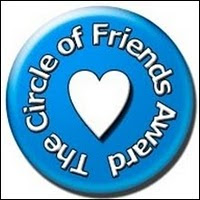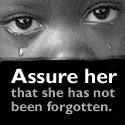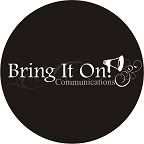One of my favorite movies in recent years is ‘The Blind Side ,’ the movie starring Academy Award winner Sandra Bullock and Tim McGraw as Leigh Anne and Sean Tuohy, the couple who mentored – and ultimately adopted – Michael Oher, who will be playing his second season for the NFL’s Baltimore Ravens this coming season. Leigh Anne and Sean have just released their story in ‘In a Heartbeat: Sharing the Power of Cheerful Giving
,’ the movie starring Academy Award winner Sandra Bullock and Tim McGraw as Leigh Anne and Sean Tuohy, the couple who mentored – and ultimately adopted – Michael Oher, who will be playing his second season for the NFL’s Baltimore Ravens this coming season. Leigh Anne and Sean have just released their story in ‘In a Heartbeat: Sharing the Power of Cheerful Giving .’
.’
Here is the synopsis of this wonderful memoir:
For the first time, the remarkable couple featured in The Blind Side tell their own deeply inspiring story.
tell their own deeply inspiring story. First came the bestselling book, then the Oscar-nominated movie – the story of Michael Oher and the family who adopted him has become one of the most talked-about true stories of our time. But, until now, Leigh Anne and Sean Tuohy have never told this astonishing tale in their own way with their own words.
For Leigh Anne and Sean, it all begins with family. Leigh Anne, the daughter of a tough-as-nails U.S. marshal, decided early on that her mission was to raise children who would become “cheerful givers.” Sean, who grew up poor, believed that one day he would provide a home that would be “a place of miracles.” Together, they raised two high-spirited children, Collins and Sean Jr. – who shared their deep Christian faith and their commitment to making a difference. And then one day Leigh Anne met a homeless African American boy named Michael and decided that her family could be his. She and her husband taught Michael what this book teaches all of us: everyone has a blind side, but a loving heart always sees a path toward true charity.
Michael Oher’s improbably transformation could never have happened if Leigh Anne and Sean Tuohy had not opened their hearts to him. In this touching, funny, and profoundly inspiring book, the Tuohys take us on an extraordinary journey of faith and love – and teach us unforgettable lessons about the power of cheerful giving.
Here is the biography of these authors:
Leigh Anne Tuohy grew up in Memphis and graduated from the University of Mississippi, where she met her future husband; she now owns an interior design company.
Sean Tuohy grew up in New Orleans and plated professional basketball for a summer after college; he now owns more than seventy restaurant franchises.
The Tuohys lives in Memphis but travel all over the country speaking about their family, their faith, and how each of us can make a difference in the world.
In the Prologue, the Tuohys explain a theory that they hold dear – the Popcorn Theory:
After many years of getting and spending, of being broke, then rich, then almost broke again, of cashing in and paying up, and – let’s face it – hoping to die with the most toys, we’re convinced that it’s better to give than to receive. Some folks call that philanthropy. But we aren’t the fancy types. We don’t always have enough starch in our shirts and our household is about as formal as a sandbox. Instead, we live by a more informal notion, which we call the Popcorn Theory.
It goes like this: “You can’t help everyone. But you can try to help the hot ones who pop right up in front of your face.”
The Popcorn Theory is about noticing others. It starts with recognizing a fellow soul by the roadside as kindred, even if he doesn’t seem to belong in your gated community and, at six foot five and over three hundred pounds, is the biggest piece of popcorn you ever saw. It’s about acknowledging that person’s potential and value. It’s about seeing him, instead of looking past him. (pp. 1-2)
They explain that Michael gave them far more than they ever gave him:
It’s a message about giving. We often say that our son Michael gave us much more than we gave him. That confuses people; how is it possible that a homeless kid could give anything to wealthy parents who already had two perfect children? It’s possible because in every exchange with Michael, we came out on the better end. We gave him a home – and he gave us back a stronger and more centered family. We gave him advice and support – and he gave us back a deeper awareness of the world. We gave him love as a boy – and he gave us back a man to be proud of. Each thing we gave to him has been returned to us multiplied.
But before any of that could happen, something else had to happen first. A fundamental precondition had to be met.
We had to notice him. We had to see him. (p. 4)
They explain there is a misconception about Michael:
But if there is a fundamental misapprehension about Michael, it’s that he needed saving. As we got to know him during those first few weeks, we discovered that underneath his shyness, his foot shuffling, and his head ducking, he had a tremendous will to determine the course of his own life. If he initially seemed forlorn, and searching, that was because he felt guarded and out of place because of what he’d been through. But buried under his skin, like rock under soil, was a deep confidence, a sense of his own capacities. You saw flashes of it when he would cut his eyes up at you and smile. In that instant, you could see all that he had inside of him, as if the landscape of his mind had just been lit up by lightning. (p. 13)
They learned the sweetness of cheerful giving at the church they attend:
One of our deepest beliefs is beautifully captured in the Second Epistle of Paul to the Corinthians, or 2 Corinthians. The seventh verse of the ninth chapter of 2 Corinthians reads: “Each one must give as he has decided in his heart, not reluctantly or under compulsion, for God loves a cheerful giver.” After many years of attending church together, and helping to found one of the fastest-growing congregations in Memphis, Grace Evangelical, we came to believe that a cheerful, spontaneous offering, no matter how small, could be increased and made powerful by God. Our faith helped us understand that it was up to us to be generous and make ourselves available to be used by others.
We also became convinced that in order to really give, we had to get our hearts right. We had to learn that it was important to let go of any particular agenda. What were we hoping to achieve when we gave? We knew that it couldn’t be “We’re looking to go out and help a fourteen-year old Hispanic boy today.” (p. 21)
The book alternates between Sean and Leigh Anne writing chapters together, each writing their own chapters, as well as chapters from their three children, plus Sandra Bullock and Tim McGraw. In one of Sean’s chapters, he describes how he first met Leigh Anne at Mississippi State:
I stepped through the fraternity’s front door into a roaring, liquor-soaked, underwear-clad mob. The minute I crossed the threshold, I saw a girl coming at me like a blaze. She had waist-length blonde hair with four colors of sunshine in it. She was wearing Mickey Mouse sunglasses and boxers. She jumped into my arms and kissed me. The kiss held for a second and then she was gone. She disappeared into the boisterous, damp crowd like a flash….
We moved deeper into the crowd, and as soon as I caught sight of the blonde girl again, I turned to one of my buddies and asked, “Who is that?” The answer came back that she was Leigh Anne Roberts, a varsity cheerleader and a prominent member of the Kappa Delta sorority house. Though she was only a sophomore, she was one of the prettiest and most sought after coeds on campus. And she was already known as a go-getter who was so organized and overscheduled with sorority campaigns that she kept an agenda planner. In those days, nobody kept a planner in college. (pp. 52-53)
That’s quite an introduction!
And Leigh Anne also shares her memories of their first encounters:
Then came Sean. I’d made varsity cheerleader as a sophomore and I was doing the Hotty Toddy and climbing on human pyramids – I was in the middle row – when I noticed him. It was during our big upset of Alabama, when he went to the free throw line with a second left to hit the game-winning shot. While he was shooting I thought, “That boy sure does have good-looking legs.”
That night at the Kappa Alpha party, I introduced myself in my rather high-spirited way. Shortly afterward, I sent him an invitation to a KD “crush” party, an affair in which we all invited someone we liked from afar. The invitees didn’t know who summoned them and wandered around the room waiting to be flirted with. Sean, Mr. Phi Delta Theta, figured out pretty quickly who had invited him, and it wasn’t long before he also figured out I liked him for himself, not because he was a big-shot ballplayer. (p. 90)
After they married, they realized they had a similar worldview:
Life was a test, Sean and I agreed. God wanted to see how we would deal with various circumstances. That was why He gave us problems, pleasures, assets, and deficits. It was why He made people black, white, Latino, and Asian; why people were wealthy, poor, and middle class.
It was all part of the Big Test, and one of the questions on the test was, “What do you do with difference?”
God gave us problems to see how we would handle them. And He gave us difference to see if we could learn to live with one another. (p. 95)
Here’s Sandra Bullock explaining the difference that the Tuohys are making in the world:
I constantly tell her [Leigh Anne], “This is your story, it’s not my story.” She has no idea the path she’s begun in terms of adoption and fostering. I don’t think the Tuohy realize the profound effect that they are going to have, what they are going to do for our country in terms of making people aware of this problem. It’s not been on the forefront of people’s minds, but it is now. It is on the forefront of my mind now, every day, when I get up. I look around and I go, “Is he? Is she? What is their situation?” And it’s because of this family.
Interestingly, earlier this year, Sandra adopted a little baby boy of her own.
I was interested to see the Tuohy’s parenting philosophy:
We also didn’t believe that kids should have idle time. There was no coming home in the afternoon and getting on the computer and obsessing about video games. Whether it was playing in the band or appearing in a school play, our children were going to do as many things as we could enroll them in. The one thing they weren’t going to do was to be a slug.
We piled after-school activities on their plates until they hardly had a free moment. Collins was in gymnastics by age four, and then she added piano, swimming, track, and cheering. S.J. played basketball, baseball, and golf, studies piano, served as a volunteer basketball coach for a group of younger boys, and wrote for the school paper. (p. 119)
Hard work began to pay off for them in the late 1990s:
By the late 1990s, Sean and his partners in RGT Management were on their way to acquiring more than eighty Taco Bells, Long John Silver’s, Pizza Huts, and Kentucky Fried Chickens spread across Tennessee, Mississippi, Kentucky, Ohio, and Missouri. At the same time, Leigh Anne’s design business was thriving, thanks to athlete clients from the Southeast who had made it big in the NBA and NFL and had called her to decorate their new home. It didn’t hurt to have a good friend in Memphis named Jimmy Sexton, one of the most powerful sports agents in the country, who represented a vast array of coaches and athletes. (p. 125)
It was interesting to read that they learned about the different ways people learn and transfer information:
Most experts now agree that our traditional understanding of the word “intelligence” is too limited. It doesn’t describe or measure the wide varieties of capacities that people, especially kids, display in classrooms. Harvard University’s Howard Gardner suggest that a child who learns multiplication easily is not necessarily smarter overall that a child who struggles. The second child may simply have a different brand of intelligence that needs to be accessed with an alternate approach. In fact, the second kid may even be smarter. One of the multiple intelligences that Gardner identifies is “bodily-kinesthetic,” which describes people who learn better through movement and demonstration. They tend to be good at sports, dance, acting, or performing and they learn best by doing something with their bodies rather than by sitting and reading. They have great capacities for verbal and image retention and they do best with oral exams. (p. 149)
In his chapter, Michael sees the reason for his success:
The Lord kept his hand on me by finding the Tuohy family, my family, and bringing me to them. That was nothing but the man above. I was blessed to be taken in by a family that showed me a lot, taught me a lot. It was one of the best feelings I ever had. I just needed that chance. It’s interesting because people had the opportunity to help me. Sean and Leigh Anne weren’t the only ones who knew my situation. But they were the two who stepped in and reached out. (p. 182)
Here’s how the Tuohys interpret their role in the life of Michael, and the success of the movie version of ‘The Blind Side :’
:’
Whatever we do next, we believe God will be in charge of the entire project. Looking back, we believe that Michael became a part of our family because we stayed open to the opportunities God put before us. He had plans for Michael’s life, and we just happened to be facilitators of that plan. We like to think of ourselves a merely vessels He used to accomplish His purpose.
It’s also crystal clear to us that we are supposed to use the success of The Blind Side to help others, and to pass on the sure knowledge we’ve acquired that each of us has the ability to make a difference. Our feelings are summed up by a saying of Billy Graham’s, which Leigh Anne carries around on a card: “The legacy we leave is not just in our possessions, but in the quality of our lives. The greatest waste in all our earth, which can not be recycled or reclaimed is our waste of time that God has given us each day.” (p. 254)
to help others, and to pass on the sure knowledge we’ve acquired that each of us has the ability to make a difference. Our feelings are summed up by a saying of Billy Graham’s, which Leigh Anne carries around on a card: “The legacy we leave is not just in our possessions, but in the quality of our lives. The greatest waste in all our earth, which can not be recycled or reclaimed is our waste of time that God has given us each day.” (p. 254)
The Tuohys end their story this way:
Love, we’ve learned, can come into your life in a heartbeat. But the people who are your family aren’t always the people who are blood related to you, and loving someone unconditionally is a lot easier than we make it out to be.
Give love and you will always get it back. That’s our story, that’s our message. (p. 264)
I have long been interested in hearing the Tuohy’s version of their life directly from them, and they are even more inspiring that I’d imagined! They are clearly the hands and feet of Christ on this earth, and they are making a tremendous impact for good wherever they go. I am so excited to see a ‘secular’ publisher such as Henry Holt publish this book in which the main characters exemplify Christ in so many ways. I look forward to seeing where the Lord leads the Tuohys in the future, and thank them for their warm and generous hearts.
You can order this book here .
.
This book was published by Henry Holt and provided by the B&B Media Group for review purposes.


































.jpg)






